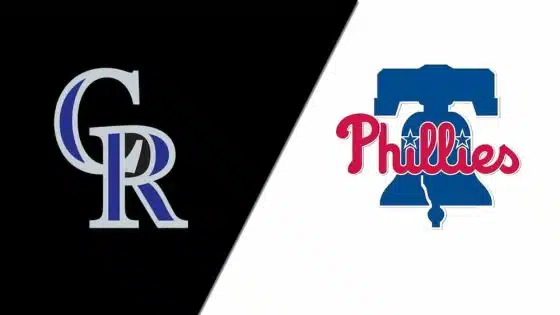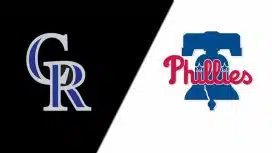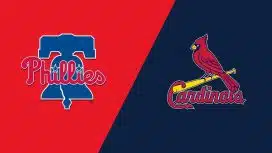By Tim Kelly, Sports Talk Philly editor
To give you an idea of how many legendary names will be on SportsTalkPhilly.com's countdown of the Top 25 Players to Ever Play a Game for the Phillies, Ryan Howard opens the countdown at No. 25. This is Ryan Howard, who hit 58 home runs and won the National League MVP in 2006. This is Ryan Howard, who hit 262 home runs and drove in 796 runs between 2006 and 2011.
Yeah, the countdown is that deep.
Unfortunately for Howard, this isn't a countdown that simply takes a player's peak into account. Howard's torn Achilles, among other injuries that he had in the second half of his career, probably prevented him from playing a few more seasons. More importantly, though, they turned the last five seasons of his career into extremely inefficient years. In fact, according to High Heat Stats, Howard posted the worst WAR of any position player after age 32 in the history of the sport.
There were lots of balks when Howard came in at No. 18 overall on our countdown of the Top 25 Phillies of All-Time last offseason. But our formula for that countdown was designed to measure a player's entire career, not just their peak. The formula used for this countdown isn't the same as the one used last year, but the aforementioned description still applies. For as dominant as he was from 2006 to 2011, he was the opposite, largely because of injuries, between 2012 and 2016. That five-year stretch counts as much as any other five-year stretch during his career.
This countdown was designed to benefit players like Pete Rose, Joe Morgan, Jim Thome and Pedro Martinez. These are players who spent the bulk of their Hall of Fame caliber careers playing for other organizations, but had stints with varying degrees of length in Philadelphia. In other words, it lengthened the pool of candidates eligible for the countdown. And Howard still found his way onto the list, which is perhaps a testament to how good he was at his peak.
Career Accomplishments
- Played with Phillies from 2004-16 (his entire major league career0
- Three All-Star Game appearances (2006, 2009, 2010)
- 2005 National League Rookie of the Year
- 2006 National League MVP
- Led MLB in home runs in 2006 and 2008
- Led MLB in RBIs in 2006, 2008 and 2009
- Most single-season home runs in team history (58 in 2006)
- Second in franchise history in home runs (382)
- 2009 NLCS MVP
- 2008 World Series champion
*Awards were not factored into the formula
Career Defining Moment
From a team perspective, Howard had many memorable moments. He had 77 career home runs in regular season games that took place in September or October, more than any other month. His teammates "just got him to the plate" in the ninth inning of Game 4 of the 2009 NLDS, which he rewarded them for. He won the 2009 NLCS MVP.
But the top individual moment of Howard's 13-year career came on Sept. 3 2006. Just three days after he broke Mike Schmidt's franchise record for most home runs in a single-season, he became the first player in Phillies history to hit 50 home runs. For good measure, he hit three home runs that afternoon.
Reasoning for ranking
Howard scored a 14 through our formula, which was significantly lower than any other player on the countdown, including the person who came in at No. 24.
He earned four points for his four two-win seasons (per Baseball Reference). His MVP season of 2006 was the only season that he had a WAR higher than five, as he came in at 5.2 (per Baseball Reference). That earned him three points. Howard's 382 career home runs are 67th all-time, meaning he got one point for being in the top 200, two points for being in the top 100 and three points for being in the top 75. His final point came from checking in at No. 156 all-time in RBIs.
What set Howard apart from other candidates that just missed making this list was that he scored a nine in terms of importance to the franchise. How the importance ranking was determined is explained more in-depth below, but the nine that he scored in this category was tied for the second highest total given out to any player.
Explanation of scientific formula
The player rankings formula combines both traditional and advanced statistics/metrics and assigns a point total to each category.





